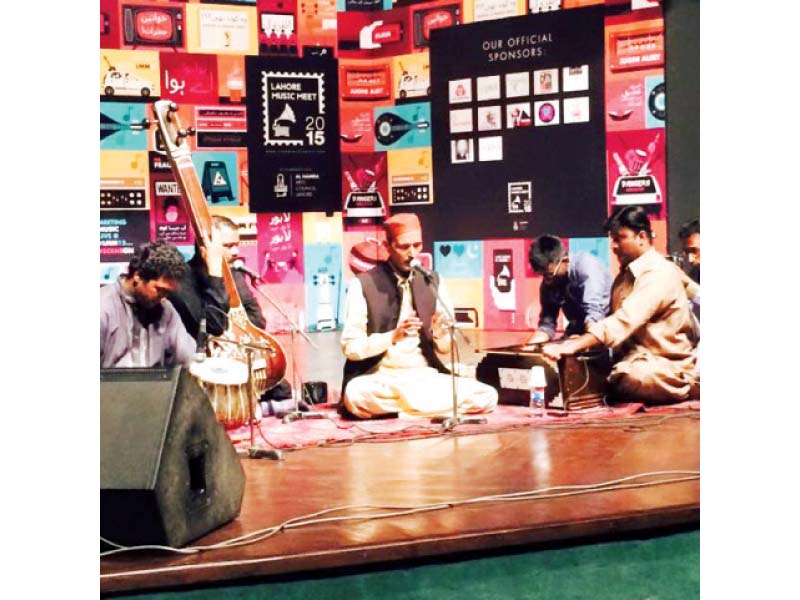
Speakers at a Lahore Music Meet session on Saturday sought greater government support for classical musicians in the country. They also criticised the government for not consulting musicians on its policies for the industry which they said were framed entirely by bureaucrats with no background in music.
The speakers at Sur, Raag, Taal and Bandish: Classical Music in the Modern Age included Faheem Mazhar, Sara Zaman, who teach classical singing, and Beenish Pervaiz, a classical singer. The session was moderated by Athar Masood.
The speakers rejected the impression that classical music in the country itself had undergone a decline. Zaman said classical music was not in a state of decline. However, she said, there had been no growth in the classical music industry because of the religious policies adopted by the state during the late 1970s.
Zaman lamented that the successive governments had not been interested in patronising classical musicians. She said the popularity of classical music was owed to its patronage by Mughal rulers and various nawabs in India. She said famous classical musicians like the Baray Ghulam Ali Khan, Fateh Ali Khan and Salamat Ali Khan had all benefited from their patronage.
She suggested that the government should build schools for the teaching of music and award scholarships to the music students.
Mazhar also blamed the government policies since General Ziaul Haq for the lack of public interest in classical music. “The majority in Pakistani society has been disconnected from classical music. They no longer respect classical singing as a profession,” he said.
He said rise in religious extremism was a consequence of the successive governments’ lack of interest in the promotion of classical music.
He suggested that the government include promotion of classical music in its plan to combat terrorism in the country.
Mazhar the government’s lack of interest in promotion of classical music was ironic as Muslim rulers had been the first in patronising classical music in India. “I have visited many Muslim countries in the Middle East and Africa and seen their national orchestras. It is sad that we do not have one in Pakistan,” he said.
Pervez said many of the classical instrumentalists and composers had been forced to change their professions. She said famous singer Fareeda Khanum had had to quit singing because she couldn’t find a single instrumentalist to play background music for her.
They criticised the government for not consulting musicians before making policies on music.
The speakers also criticised the musicians. They said the practice of keeping knowledge pertaining to sur (notes), taal (beat), bandish (composition) and raag (melodies) within certain families had been detrimental to the growth of classical music. “The classical music gharanas (families) in India and Pakistan have jealously guarded their knowledge. As a result, a very small number of people actually know about sur and taal they use in singing,” Mazhar said.
Published in The Express Tribune, April 5th, 2015.


1729662874-0/One-Direction-(1)1729662874-0-165x106.webp)


1726722687-0/Express-Tribune-Web-(9)1726722687-0-270x192.webp)


1732011525-0/Express-Tribune-(8)1732011525-0-270x192.webp)








COMMENTS
Comments are moderated and generally will be posted if they are on-topic and not abusive.
For more information, please see our Comments FAQ